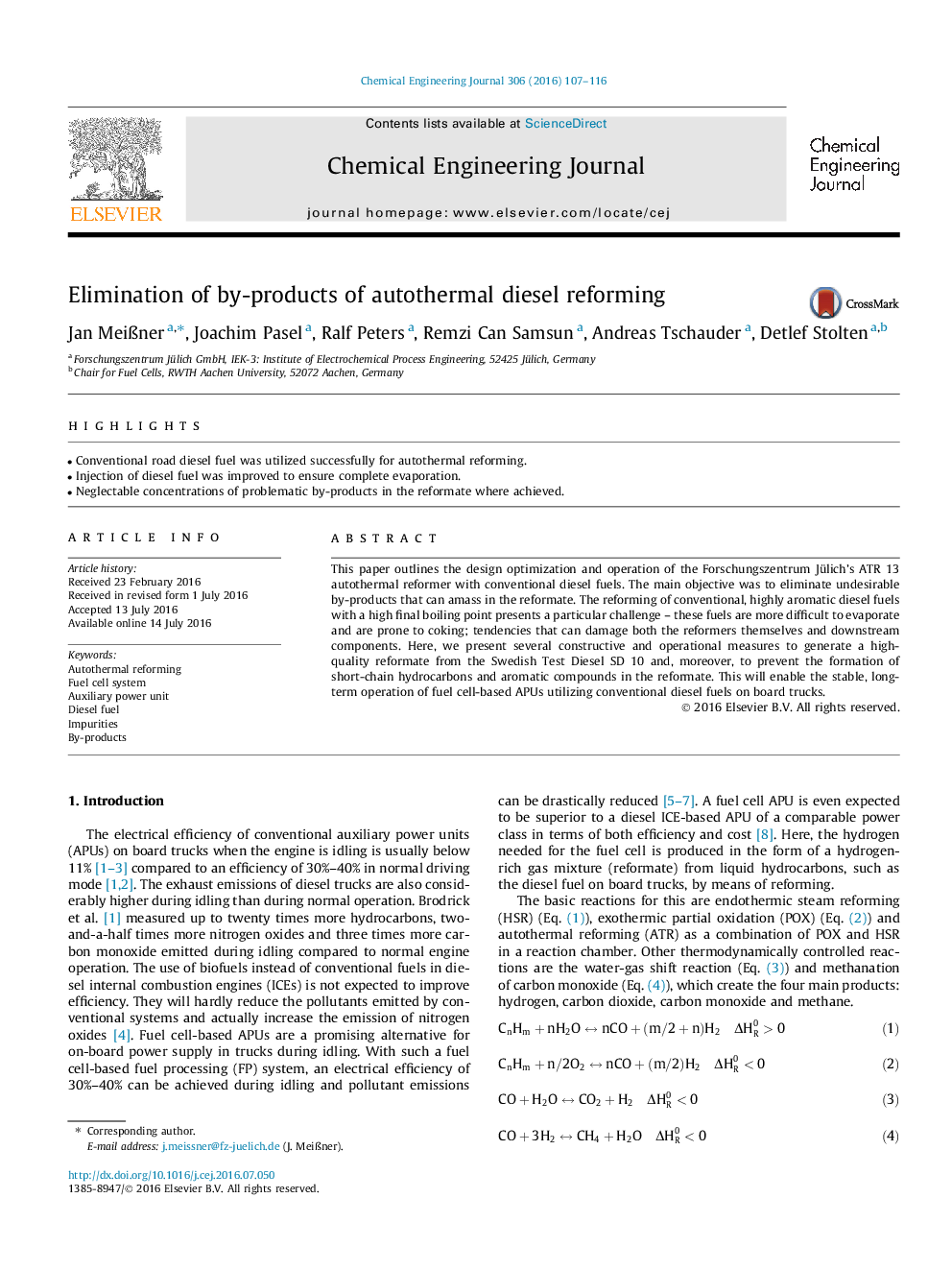| Article ID | Journal | Published Year | Pages | File Type |
|---|---|---|---|---|
| 145243 | Chemical Engineering Journal | 2016 | 10 Pages |
•Conventional road diesel fuel was utilized successfully for autothermal reforming.•Injection of diesel fuel was improved to ensure complete evaporation.•Neglectable concentrations of problematic by-products in the reformate where achieved.
This paper outlines the design optimization and operation of the Forschungszentrum Jülich’s ATR 13 autothermal reformer with conventional diesel fuels. The main objective was to eliminate undesirable by-products that can amass in the reformate. The reforming of conventional, highly aromatic diesel fuels with a high final boiling point presents a particular challenge – these fuels are more difficult to evaporate and are prone to coking; tendencies that can damage both the reformers themselves and downstream components. Here, we present several constructive and operational measures to generate a high-quality reformate from the Swedish Test Diesel SD 10 and, moreover, to prevent the formation of short-chain hydrocarbons and aromatic compounds in the reformate. This will enable the stable, long-term operation of fuel cell-based APUs utilizing conventional diesel fuels on board trucks.
